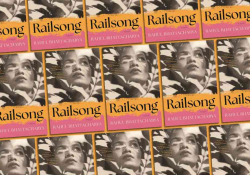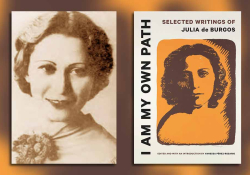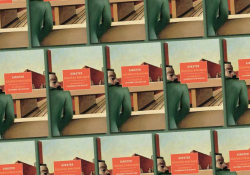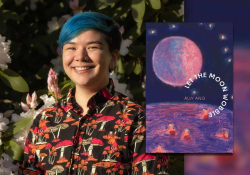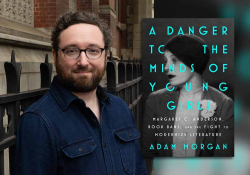The Self Is a Book Made of Expanded Memories: José Luís Peixoto’s Homecoming
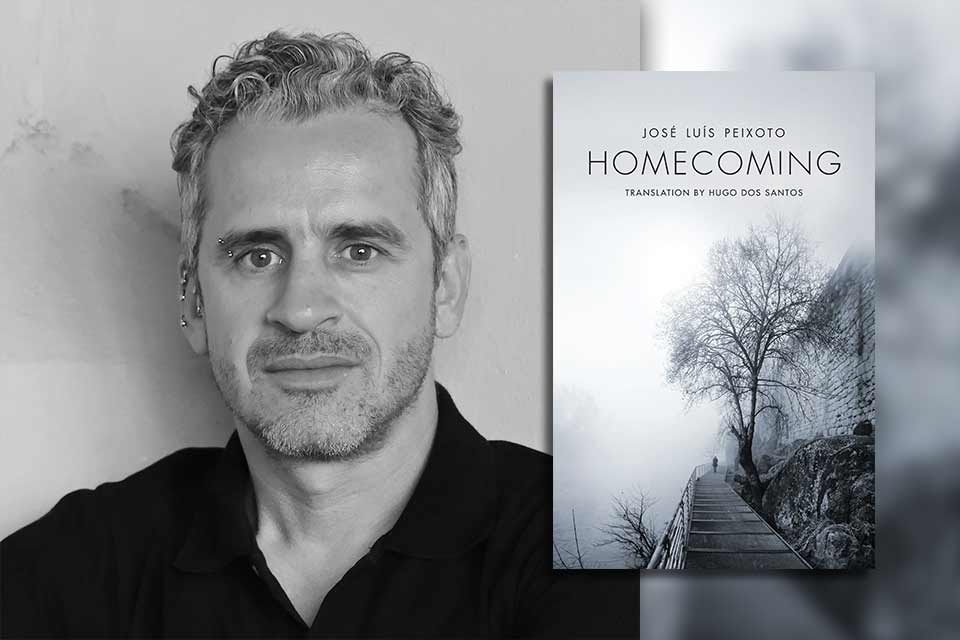
Born in 1974 in the parish of Galveias, Portugal—in the southern region of Alentejo—José Luís Marques Peixoto is a prolific and widely acclaimed writer who has published over twenty books in multiple genres and received numerous major awards in Portugal, the Portuguese-speaking countries, and internationally. His work has been translated into at least twenty languages, including Spanish, Romanian, English, French, Serbian, Italian, Japanese, Cape Verdean Creole, Greek, German, and Chinese.
Homecoming, artfully translated by Hugo dos Santos (Arquipélago Press, 2024), is a collection of poetry that oscillates between different genres; it is poetry, it is travelogue, it is autobiographical creative nonfiction, it is deeply reflective philosophical inquiry. The collection was originally published in Portugal by Quetzal Editores under the title Regresso a Casa, and it won the Prémio Livro do Ano/Bertrand for Best Poetry Book of the Year in 2020.
The links between time, lived experience, memory, literary writing, and the very idea of self constitute the central axis of Homecoming. The collection was written during the Covid-19 pandemic when the author, like most of us, felt trapped, suspended in an arrested present seemingly without end. In those silent, heavy days, Peixoto waited, mourning a future that seemed uncertain. As Peixoto writes in the poem “Quarantine”: “Overnight the hour changed and yet / we remained in yesterday’s time / Since this Sunday is so rare, we cannot / guarantee that tomorrow will be Monday. / The future has wandered off into the calendar; it exists / beyond what we can see through your window” (11). This arrested time, without a guaranteed future, forced the poet to reconsider the importance of poetry in its relation to deep emotions and the processing of lived experience, leading him to write this book.
The untitled poem at the beginning of the collection functions as a sort of foreword: “Notice this morning all around us. / Greet this light, this breath running / through our veins. There was a time / I wrote: When I grew tired / of lying to myself, I began to write / a book of poetry / Today, I learned / that lesson again and, for that reason, / I am here. We are here” (1). The poet is also reminding us that it is of utmost importance to live in the present, to notice, feel, and be in the now.
For Peixoto, poetry is the medium that allows us to slow down, reflect, and gather the threads that constitute our being.
For Peixoto, poetry is the medium that allows us to slow down, reflect, and gather the threads that constitute our being. Literary language allows for an informed, dilated identity—an expanded and complex reflection. In an interview given to Rascunho: O Jornal de Literatura do Brasil in 2021, Peixoto discusses the relevance of literature in a world obsessed with speed and notes the following in relation to Homecoming:
This book ended up being my way of dealing, through literature, with what I was living [during the pandemic]. Poetry is a genre that has a very close connection with metaphor, and, in a certain way, what we were living during the pandemic was a great parable, full of meanings. And so, at the end of the day, when I had moments of quietude, I would write poems, which quickly gave form to Regresso a Casa. (my translation)
Peixoto adds, in the same interview, that “literature has the potential to bring about reflection, knowledge and understanding” and that he has “fully given himself to the literary form of perception.” Poetry weaves meaning through impactful words that recall and attempt to give life to all that he has seen, felt, tasted, smelled, and heard, bringing him closer to a real home. This language becomes his own memory, his sense of self—a self recalled, put together in a present that had no guaranteed future. He declares in that first poem that “A book of poetry” is “like a homecoming” (1). Poetry is all the experiences he has had, all the voyages he has undertaken, literal or symbolic, now painted, re-created, reimagined, relived, reflected on, and reshaped through pressed, distilled, and visionary words that are after meaning, a fuller comprehension of what took place, so that the authorial self, famished for satiating meaning, can appease its existential lack.
The very medium of poetic language is what allows Peixoto to understand his past self, reliving all those moments that have made him the person that he is in this present. Without this deep reflection that he gathered, arranged, rearranged, and recollected in his “moments of quietude” through a poetics of allegorical language, he has no self—or at least, his self is not as expanded, as grand as it yearns to be. This is reminiscent of William Wordsworth’s famed statement about poetry: “Poetry is the spontaneous overflow of powerful feelings: it takes its origin from emotion recollected in tranquility” (Wordsworth, Lyrical Ballads, 274).
The idea that the self (or the truer/expanded self) is a poem or a literary book, or that the self is a metaphor only possible in allegorical language, is reiterated in many ways throughout Homecoming. In the poem “Our Home” from the section “Oeiras,” Peixoto writes: “The books / are walls, like an ocean . . . Our home is a verb” (61). And in the poem “You Died on Me (Morreste-me),” he states: “the hours we spent returning / home from journeys are now / fewer than the hours read in the book / where I described those journeys / returning home. / And yet, / that time still shines inside / my closed / eyes” (91). This last poem is from the section “My Bibliography,” where Peixoto writes a poem about many of the books he has written. “You Died on Me (Morreste-me)” is about Peixoto’s first book, Morreste-me, published in 2000, which explores the premature death of his father from a terminal illness when the writer was twenty-one years old. It is a book of “mourning and loss,” as Peixoto has classified it (see “What Do They Call Death in Portuguese?”), written in a highly poetic, affected, and emotional language.
The noted citation from “Our Home” reiterates the idea that writing is, for the author, an important medium to process feelings and emotions related to events that have happened to him. A book takes longer to write (and read) than the hours Peixoto spent doing specific things with his father as suggested in the quoted verses from “You Died on Me (Morreste-me).” What Peixoto means is that the book was necessary for him to understand and deeply connect with his father, to remember, rewrite, and reorganize the experiences they had lived together. It was the necessary tool to enlarge the beingness of both father and son, forging a connection or bond that may not have existed before, or at least would not have been expressed in the intense and intimate fashion used in the book—a literary way that expands time and beingness.
The poet’s physical and psychological, literal and symbolic voyages—to Galveias, Oeiras, North Korea, Thailand, China, and beyond—are distilled before us, filtered through the deep and introspective gaze of authorial reflection in an arrested present. That seemingly immobile present of Covid-19 meant that we were all locked in, both in the sense that we could not go outside as usual and move freely, but also in our isolation and arrested life. We were given the time to reflect deeply, go inward, and ponder what really matters, what we are, what we think we are but are not, what we think life is but is not, what we think is important but is not. We were inhabiting a time—locked in in a present that demanded solutions, explanations, reflections. This present was “a great parable, full of meanings,” as Peixoto tells us, and a parable always necessitates decoding. In this case, the decoding is made through a poetic language that searches for meaning.
Language—poetic, visionary, telling language—brings everything together. Without this metaphorical magic, this alphabet that translates our experiences, we lack a home, a center to hold onto. We need language, we need storytelling to remember, reflect, discover, and rediscover who we are, where we have been, why we are what we are because we have been here and there. Homecoming is a beautiful ode to the power of language to make sense of everything by a highly sensitive and talented crafter of language, who has the capacity to reflect on the pressing existential issues of our time. Read it and see if you—yes, you—can also be motivated to write, salvage your own journey, your own language, your own self from the threads of forgetfulness and the existential vacuum that our ultra-fast-paced world denies us.
We are all poets, orators, writers, wanting to use our own loom to weave, not a shroud, but a living blanket that can fully cover our beingness.
Peixoto is inviting us all to write our own poem, our own odyssey. We are all poets, orators, writers, wanting to use our own loom to weave, not a shroud, but a living blanket that can fully cover our beingness. We are all travelers moving away from home but deeply yearning to reach our true home. We are all Odysseus and Penelope, Ithaca and Troy, as Peixoto reminds readers in the poem “Odyssey”:
Behold Ulysses on his long journey, surging past the tides,
surging past the verses, surging toward the anticipation
of someone who watches the horizon from Ithaca’s shore.
Behold Ulysses with his sense of purpose.
And, of course, Ulysses is you. You already understood that, no?
Ulysses is you and the Trojan War is you; you are the entire journey
and you are Ithaca, too. (5)
Toronto Metropolitan University
Aslam, Irfan. “What Do They Call Death in Portuguese?” Dawn: E-Paper, February 26, 2024.
Peixoto, José Luís. Homecoming. Trans Hugo dos Santos. Arquipélago Press, 2024.
———. Morreste-me. Quetzal Editores, 2000.
———. Regresso a Casa. Quetzal Editores, 2020.
Pereira, Rogério. “A poesia é a liberdade absoluta.” Rascunho: O Jornal do Brasil, January 29, 2021.
Wordsworth, William, and Samuel Taylor Coleridge. Lyrical Ballads and Other Poems. E-artnow, 2015.

